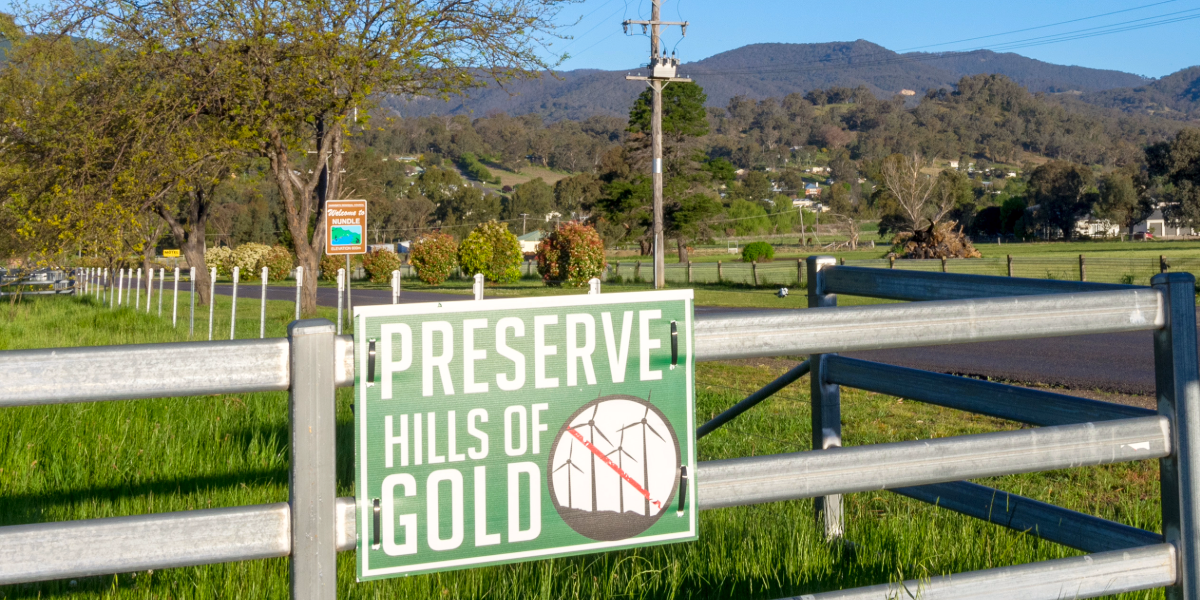The Hills of Gold wind farm proposal in Nundle has been one of the most controversial renewable energy developments in the country, and the fight is set to continue.
Hills of Gold first won approval from the state government planning department late last year, but the approval was for a shrunken capacity of 290MW, which the project owner, the French energy giant Engie said was not commercially viable, and they reapplied for approval for a larger project, which was granted this week.
Tamworth Regional Council is “extremely disappointed” at the Independent Planning Commission’s decision to grant consent for Engie’s Hills Of Gold Wind farm at Nundle.
“Council has not supported this wind farm for multiple years based on a number of significant concerns mainly regarding the site suitability, biodiversity, and the transport routes,” TRC General Manager Paul Bennett said.
Council has said that there are several unanswered questions, based on the amount of time and effort expended since the project launch in 2018, and states that the development “should have been refused”.
“Instead, the development will continue to cause undue strain, stress, and social division to the Nundle and Hanging Rock communities.”
Hills of Gold Preservation Incorporated (HOGPI) has also released a statement saying they believe the Department of Planning, Housing, and Infrastructure “has failed them.”
“The IPC has approved a poorly-sited project, partly proposed on unauthorised cleared land, with local majority opposition, unresolved land access issues, indirect impacts to two national parks, and potential impacts to downstream water flows”.
HOGPI accuses the Decision of “cherry-picking 2016 and 2023 draft noise and visual guidelines”.
The project is not within a renewable energy zone. Control for consent of the project was taken over by the IPC as a State Significant Development “because more than 50 public objections were received by the Department of Planning, Housing, and Infrastructure, and because Tamworth Regional Council objected to the project”, according to the IPC’s Statement of Reasons for Decision.
The approval comes with strict conditions, including offering the landowner the option to have their property acquired by Engie, and – if requested – implement landscaping and vegetation screening for residences within 5km of any wind turbine.
The number of turbines has fluctuated wildly over the years since the project was launched in 2018, as Engie and the IPC negotiated back and forth, from 70, to 65, to 64, to its lowest count of only 47 in December 2023.
Engine countered this with a request for a reinstatement of 15 turbines February 2024, which the IPC agreed to in June.
Responding to questions from the New England Times, a spokesperson for Engie said that they were offering $186,000 per year to a Community Enhancement Fund split between Tamworth Regional and Upper Hunter Councils, and discounted power bills for those near their power project.
Hills of Gold is still awaiting a determination from the federal government, which is assessing the project under the federal government’s Environment Protection and Biodiversity Conservation (EPBC) Act.
While consent has been granted, this does not mean the project will still go ahead, as 40% of projects at this stage do not reach completion, according to HOGPI.
Don’t miss any of the important stories from around the region. Subscribe to our email list.

